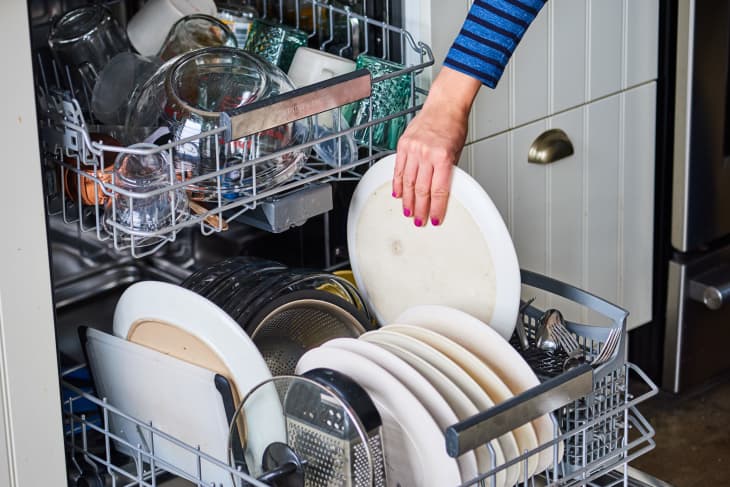5 Surprising Things You Didn’t Know About Your Dishwasher

Is there an appliance as hotly debated as the dishwasher? We think not. For the record, yes, there is a right way to load your dishwasher, yes, you have to clean it, and yes, you’re using too much detergent! Now that that’s out of the way, here are a few more things you should know about this most controversial device, which, by the way, was invented in 1887 by a wealthy woman who wanted to avoid chipped china, but didn’t really go mainstream until the 1950s. Just, you know, in case you were curious.
1. Your dishwasher uses less water than hand-washing does.
Just how much less water depends on your washing style and your dishwasher, but the average hand-washing session uses about 20 gallons, while the average dishwasher cycle uses 10 gallons. The most energy-efficient dishwashers use between four and six gallons! (This savings is, of course, negated if you run your dishwasher when it’s only half-full.)
2. It also uses less energy than hand-washing does.
This one surprised us, too, but the explanation is super-straightforward. Less water means less energy to heat the water. See? Makes complete sense.
3. Your dishwasher doesn’t have a garbage disposal.
Old dishwashers used to have a garbage disposal; new ones have a filter, which you have to remove and wash from time to time. The point, you can’t put food-covered plates in the dishwasher. While you don’t have to rinse them (see below), you do need to scrape dishes before you load them into the machine.
If your sink has a garbage disposal, it’s a good idea to run it right before you run your dishwasher to make sure anything caught in the disposal doesn’t make its way into the dishwasher and clog up the drain line.
4. Your dishwasher works better if you don’t prewash your dishes.
Raise your hand if you’re one of the many, many people who prewash their dishes? Not only does this waste water, but it also makes the detergent less efficient because the soap has nothing to grab onto. And it confuses your dishwasher, which might run a lighter cycle and leave you with less-than-clean dishes.
5. You should leave the door open for a bit after a cycle.
This tip came to us from a dishwasher pro, who commented that cracking open the door right after the cycle is over helps eliminate moisture, allows for a more effective air dry, and also saves you energy. Win! Win! Win!
This post originally ran on Kitchn. See it there: 5 Surprising Things You Didn’t Know About Your Dishwasher